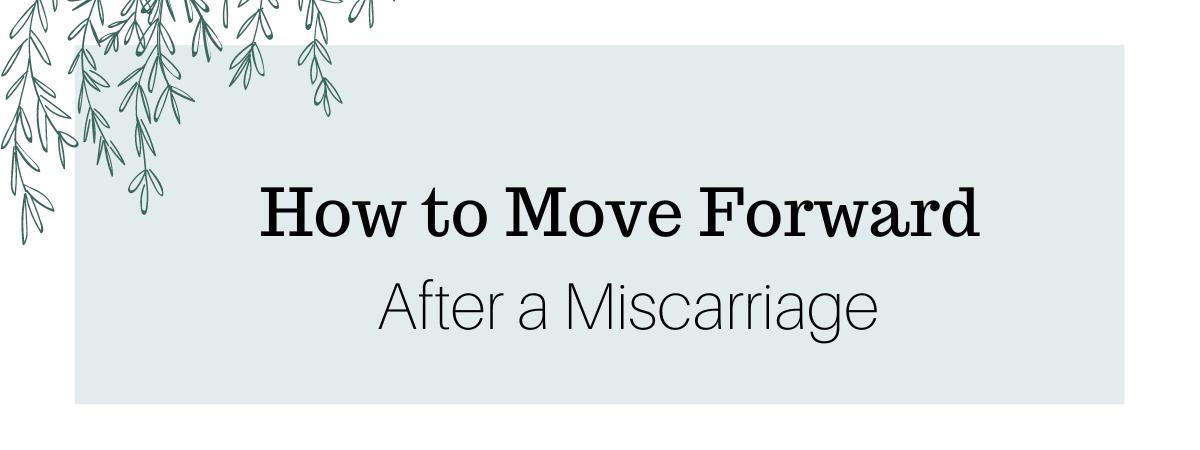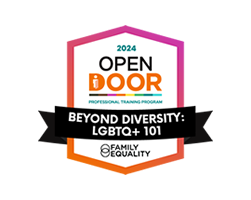According to the American Pregnancy Association, 10% to 15% of pregnancies end in miscarriage. Any intended parent who has experienced a miscarriage – either personally or via a gestational carrier – knows how devastating the loss is and how difficult it can be to move forward.
Nina Cowan, a certified fertility coach, mindfulness coach, and bereavement doula, understand the loss firsthand. Shortly after she got married in her early 40s, Nina was able to conceive naturally but miscarried at six weeks. She and her husband wanted to try again right away and began the IVF process. After three rounds of IVF, she became pregnant on her second frozen embryo transfer. Sadly, her baby girl was stillborn at 26 weeks.
“I felt distraught, defeated, and depressed, but all I wanted to do was try again,” Nina says. I began to get help from a therapist and hypnotherapist to deal with the grief. After four rounds, we were successful, and by that time, I was 46 years old. I had an amazing pregnancy without any issues and delivered a healthy baby girl at 37 weeks.”
After her daughter was born, Nina felt called to make a career change and help others who were struggling with infertility achieve their dream of becoming parents. “My fertility journey was filled with so many highs and lows, and at times it was extremely difficult to navigate alone,” Nina says. “I couldn’t help but think about all the other women and couples who were suffering in silence and afraid to reach out for help because of shame and guilt. I felt determined to empower and arm as many couples as possible with knowledge and support during their family planning journeys.”
Through her work as a fertility coach, Nina supports clients who have experienced pregnancy loss to help them process their grief and reframe their mindset to reclaim hope and move forward on their journey to parenthood.
Nina’s tips for coping with a miscarriage
- Don’t blame yourself or your gestational carrier.
Intended parents shouldn’t blame themselves or their surrogate as miscarriages are more common than most people think. Once the intended and their surrogate are both ready, they should begin a new plan with their doctor to prepare for the next transfer. - Allow yourself the time and space to grieve and heal.
The more you allow yourself to grieve and mourn your loss, the better you’ll be able to recover and regain hope. It’s all too easy for anyone who has suffered a loss to feel the need to get right back to their routine after a miscarriage. Grief can be all-consuming, which can make everyday activities and responsibilities feel nearly impossible. Try not to look too far into the future – focus on what’s in front of you at the moment.
It’s critical that you take the time to honor the needs of your mental and physical well-being. Integrate the loss into your life. Make something for your baby, such as an album, or plant a tree in your baby’s memory – anything that helps you to recognize and make meaning of your loss.
- Find a support system
Share your experience with people who you feel safe with. It could be clergy, a therapist, a bereavement doula, a close friend, or a family member. Find a support group that can help you through your grief but that also has a deep understanding of miscarriage and how to help you navigate your journey in the future. Recommended resources include Postpartum Support International and Resolve: The National Infertility Association. - Nurture yourself and practice self-care.
Isolation, depression, and anxiety go hand in hand. Spend time doing things that make you feel good and at peace. Be easy, kind, and accepting of yourself as you heal. Some examples include healing writing (grief journal), practicing mindfulness activities (painting, music, baking, etc.), meditation, good nutrition, exercise, sleep, and warm baths.
Nina’s tips for reframing your mindset and moving forward after a miscarriage
- Consider working with a professional.
Working with a fertility coach or therapist can help you through the process of coping with your emotions to prepare for the future and let go of the past. - Practice positive affirmations instead of negative self-talk. Positive affirmations can help you reframe your mindset to focus on hope for the future. Some examples to consider:
- I focus on the joy of our future baby.
- My partner and I share our feelings of love and appreciation so that we will be open to sharing those feelings with a baby.
- I release feelings of jealousy, anger and grief so that I may focus on love for a new life with a baby.
- *My surrogate is pregnant, and it feels amazing.
*For intended parents whose surrogate is pregnant after a miscarriage.
- Incorporate mindfulness activities into your daily routine. Practicing mindfulness activities can help you stay centered and focused on the positive. Examples include:
- Visualization – an activity that helps with visualizing your future baby while increasing positive thinking and reducing self-doubt and anxiety.
- Diaphragmatic breathing – deep breathing exercises that can help reduce stress.
- Creation activities (planting a garden, art, baking, etc.) – can help eliminate stress and anxiety by focusing on the present.
- Gratitude journal – keeps you mindful about what you are grateful for at the moment and puts the focus on what you have vs. what you don’t have.
- Reduce worry with cognitive behavioral therapy. A mental health practitioner or fertility coach can use cognitive behavioral therapy to help you reduce worry by reframing your thought process about miscarriage and the future. The process involves the following steps:
- Identify your worried thought.
- Look at the mental habits that get in the way.
- Examine the evidence that supports your worry habit.
- Generate more positive ways to look at the situation.
- Reframe your thought process.
About Nina Cowan
Nina Cowan is the owner of BrookHaven Consulting LLC. Her mind-body approach complements the efforts of fertility clinics and doctors to help intended parents prepare for egg retrievals and other stages of their fertility journey. Specifically, her approach includes help with diet, stress management, supplements, outside resources, and self-advocacy to help clients achieve the best results.
Nina has a bachelor’s degree in education. She is an AADP-certified fertility coach, a certified mindfulness coach, and a bereavement doula. Her pending certifications include life coach certification and plant-based nutrition. Visit www.brookhavencoach.com for more information or contact Nina at brookhavencoach@gmx.com or (813) 420-1664.
We help Intended Parents Create Happy Families via Egg Donation & Surrogacy with the help of caring Egg Donors & Surrogates.
Learn More, Surrogacy Costs, Why to use an agency, How we are different,
Finding the right carrier, Getting Started








